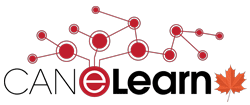Holiday Greetings from the CANeLearn Board of Directors
arago.si.edu/index.asp?con=2&cmd=1&id=203574
Wishing you happy holidays and a wonderful new year!
Upcoming Events
January 20, 2016 – 1:00 pm Eastern — Link: http://talk.ednet.ns.ca/28qj1x2ek22u
Login as Guest — Password: NSVS
- Nova Scotia Virtual School: A Collaborative Model for Online Learning – Sarah Hainsworth
- Join this session to learn how Nova Scotia has developed unique collaborative models that provide all students in the province with access to full course complements. Learn how classroom and online teachers work together in creating a cohesive and flexible learning pathway for students in the province. Bring your ideas to the discussion about how you can implement some of these unique approaches in your own school or program.
February 3 – 1:00 pm Eastern — http://bit.ly/CANeLearn
- Blueprinting your Course – Lise Pethyridge, ADLC
- The key to a great course is a great design. At the Alberta Distance Leaning Centre, we have over time developed processes to help teachers build better courses. The blueprint, an involved process around defining outcomes, an assessment plan and a student learning path as a collaborative effort is the first step. Join me as I outline this process and hopefully give you tools to apply to your own course design.
February 17 – 2:00 pm Eastern — http://bit.ly/CANeLearn
- State of the Nation: K12 eLearning in Canada
- In this session Michael Barbour, lead author of this Canadian-based research, will provide a quick overview of research compiled on blended and online learning in Canada. Innovation, new directions and successes will be part of a discussion on how to expand this research to serve educators, schools and programs across Canada. Participants will learn how to use the new website which boasts all the print research compiled into sections and a searchable database.
2016 Digital Learning Conference: Transforming Learning: Innovation and Opportunities in DL and Beyond
- February 18 – 20, 2016; Sheraton Vancouver Airport Hotel, Richmond, BC
- Call for proposals & information here: http://conference.learnnowbc.ca/
Other webinar and PD events, including URL/locations, can be found on our Online Webinars page here or our Google PD Calendar here.
Stay Connected!
- Use #CANeLearn to stream specific items of interest to members. Join the conversation!
- Join CANeLearn – Membership information here https://new.canelearn.net/membership-account/membership/
- Sign up for email copies of our news.
[fusion_builder_container hundred_percent=”yes” overflow=”visible”][fusion_builder_row][fusion_builder_column type=”1_1″ background_position=”left top” background_color=”” border_size=”” border_color=”” border_style=”solid” spacing=”yes” background_image=”” background_repeat=”no-repeat” padding=”” margin_top=”0px” margin_bottom=”0px” class=”” id=”” animation_type=”” animation_speed=”0.3″ animation_direction=”left” hide_on_mobile=”no” center_content=”no” min_height=”none”][sp-form formid=12293]
Of interest…
While K-12 online learning has grown dramatically the last decade, there is still a great need for support systems that help students not only learn a subject but also how to learn online.
Submissions are invited that:
Address the need for more research on student support systems and interactions in online and blended learning environments
Qualitative, quantitative, and mixed methods research articles are welcome. Research should be grounded in the existing literature and/or theoretical frameworks. Conceptual or theoretical articles will also be considered.
Blended and Online Learning and Teaching (BOLT)
Promoting Teaching for 21st Century Learning
Athabasca University, Canada’s leader in online post-secondary education, through the Centre for Distance Education (CDE) and the Alberta Distance Learning Centre (ADLC), the premier distance learning partner for primary and secondary education in Alberta, are excited to present an innovative module offering for the professional development of practicing teachers.
More info here:
http://cde.athabascau.ca/bolt/
Regardless of your current employment, BOLT offers K-12 professionals the opportunity to explore opportunities and innovative approaches in flexible, sustainable education.
Engage in meaningful professional development, and gain understanding in digital learning. Explore the latest digital technologies and teaching philosophies for educating 21st century learners. Develop the skills and understanding to:
- Expand your teaching opportunities
- Extend pedagogical understanding
- Enhance your teaching in blended and online learning environments
- Earn educational credentials
Nine – Four Week Modules
Utilizing Athabasca University Master of Education in Distance Education course curriculum, BOLT is comprised of nine new, separate, one credit modules designed specifically for teaching professionals.
Equivalent to the study of three graduate courses, each of the nine modules is tailored to allow completion within a four week period. The modules are designed with three weeks of active participation and a final week for reflection and assignment completion. BOLT participants gain professional knowledge, building on and extending the art and craft of teaching in the digital world.
Designed for the Working Professional
BOLT is laid out with the working professional in mind. Module schedules run counter to the intense periods of the K-12 calendar, allowing teachers the opportunity for immersive, sustained learning. BOLT modules allow for two weeks of early access prior to the module beginning to allow preview and preparation. By dividing the three existing AU courses into nine modules, BOLT provides busy educators access to graduate level studies at a manageable pace.
To complete all nine modules requires a minimum of 18 months. Term is dependent on each student’s time availability. Teachers have the flexibility to take one, some combination, or all of the nine modules as suits their professional learning needs. Each module is a self-contained learning experience.[/fusion_builder_column][/fusion_builder_row][/fusion_builder_container]

